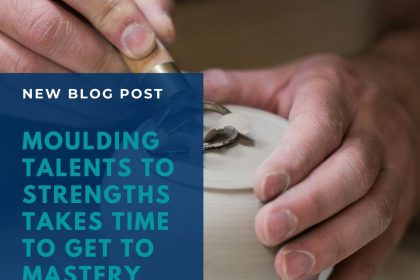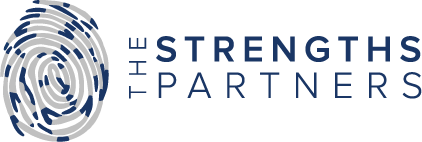
Moulding Talents to Strengths Takes Time To Get To Mastery
Ten years ago, I took a leap—turning my passion for strengths into a full-time business.
I first discovered my Strengths in 2009 whilst working as an Account director for Verizon.
In 2012, I started to think about my own Career, inspired by Stephen Covey 7 Habits of Highly Effective People. I thought about my mission and purpose in life and realised it was not to sell IT for the rest of my life, and hence, I embarked on a career change.
At the time, I had the raw materials: a love for coaching, a belief in CliftonStrengths, and a deep desire to help people grow. But like any craft, mastery doesn’t happen overnight. We started The Strengths Partners in2014, the year after I became Gallup Accredited and attained my ICF (International Coach Federation) qualifications.
Lately, I’ve been watching my sister on Instagram, who runs her own pottery studio in the UK, and I can’t help but see the parallels. She has always been the crafty one in the family—working with her hands, creating beautiful pieces, and refining her technique. But even with a natural eye for design, she didn’t start as a master potter. She had to:
- Learn how to work with raw clay—understanding its texture, flexibility, and limitations.
- Experiment—some pieces cracked, others came out misshapen, but each mistake brought insights.
- Refine her technique—through thousands of hours at the wheel, she developed her own style.
- Master her craft—now, she can shape and mold clay with confidence, knowing exactly how to create something lasting, now teaching her young grandsons the skills.
Strengths Development is the Same
Talent is like raw clay—it holds potential, but without intentional practice, investment, and refinement, it stays just that: potential. Over the years, I’ve seen firsthand how people move from raw talent to true mastery, and the difference always comes down to investment.
And, just like pottery, real strengths are tested in the kiln.
In business and life, these kiln moments come in many forms—tight deadlines, high-stakes decisions, difficult conversations. Raw talent can crack under pressure, but strengths that have been shaped, refined, and practiced emerge resilient and powerful.
Here are a few examples I’ve seen in my clients:
A naturally strategic thinker who once struggled with decision-making learns how to trust their instincts and guide others with clarity—even under stress.
A member of a team with Communication who talked too much in meetings refines their skill, learning to use the right words at the right time for maximum impact.
A leader with strong command shifts from being seen as overpowering to becoming an inspiring, empowering presence in their organization.
The Power of Reflection
Mastery of any craft—whether pottery, leadership, or strengths development—comes through consistent reflection and intentional practice. Strengths aren’t static; they evolve based on how we use and refine them.
Before a meeting, take a moment to ask: How can I use my strengths to contribute?
After a conversation, reflect: Did my strengths enhance or hinder that interaction?
When facing a challenge, consider: Which strength will help me navigate this?
True investment in strengths isn’t just about knowing them—it’s about shaping them through awareness, experience, and thoughtful refinement. The more we reflect, the more we transform raw potential into something powerful, lasting, and impactful.
10 Years, 10,000 Hours, and Still Learning
After a decade in business, I still feel like I am honing my craft and strengths constantly learning, refining, and deepening my mastery. And I see the same for my clients. The most successful leaders and teams aren’t the ones with the most talent—they are the ones who commit to investing in and shaping their strengths over time.
Mastery doesn’t happen by accident. It’s not a “set and forget” process.
Here’s to the next 10 years of crafting, learning, and growing—together.




